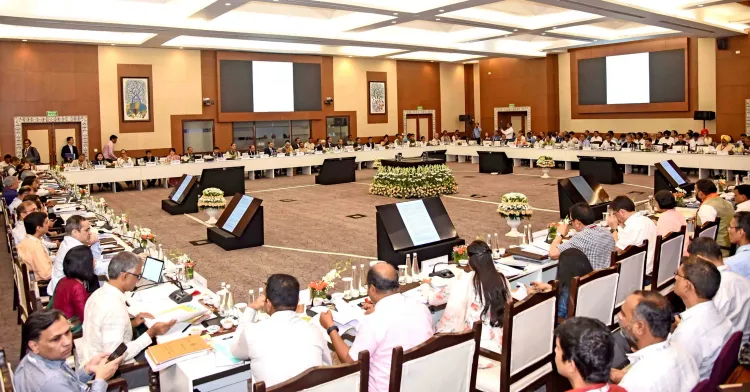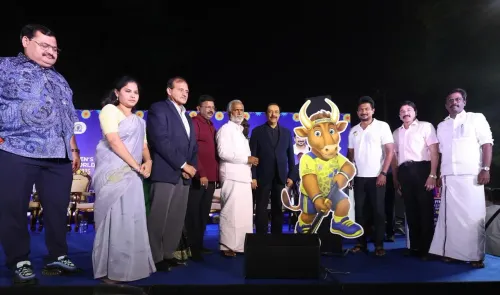What is ‘GST Pakhwada’ and Why is it Significant for Tax Reforms?

Synopsis
Key Takeaways
- ‘GST Pakhwada’ aims to enhance GST awareness and assist taxpayers.
- The campaign runs from June 16 to June 30.
- Significant changes to GST return filing are set for July 2025.
- GSTR-3B will be non-editable post-filing.
- Taxpayers must file returns within three years of the due date.
New Delhi, June 16 (NationPress) The Central Board of Indirect Taxes and Customs (CBIC) has officially launched a nationwide initiative known as ‘GST Pakhwada’ on Monday, which will run until June 30, in anticipation of the forthcoming GST Day celebrations on July 1.
This two-week campaign is designed to enhance public understanding of the Goods and Services Tax (GST) while providing assistance to taxpayers seeking clarity on their queries.
To facilitate this effort, helpdesks have been established at all Central GST (CGST) Commissionerates nationwide to offer guidance and support.
This initiative also marks the eighth anniversary of the GST’s implementation in India, a transformative reform that consolidated the nation’s indirect tax framework in 2017.
The outreach comes alongside an announcement from the Goods and Services Tax Network (GSTN) regarding critical changes to the return filing process, set to begin with the July 2025 tax period.
From that time onward, the monthly GST payment form GSTR-3B will become non-editable, meaning businesses will no longer have the ability to manually amend any information after submission. The form will instead be auto-filled based on sales data from other forms such as GSTR-1, and corrections will need to be made in advance through form GSTR-1A, according to CBIC.
The GSTN has indicated that this measure aims to enhance accuracy in GST returns and mitigate revenue leakages.
Moreover, a strict deadline is being introduced for filing returns. Starting July 2025, taxpayers will not be permitted to submit any GST returns beyond three years after the due date.
This regulation will encompass all types of returns, including GSTR-1, GSTR-3B, GSTR-9, GSTR-4, and others. This amendment was part of the Finance Act, 2023 and will be enforced on the GST portal.
Taxpayers are encouraged to review their records and file any outstanding returns before the new regulations take effect to avoid permanent exclusion.









